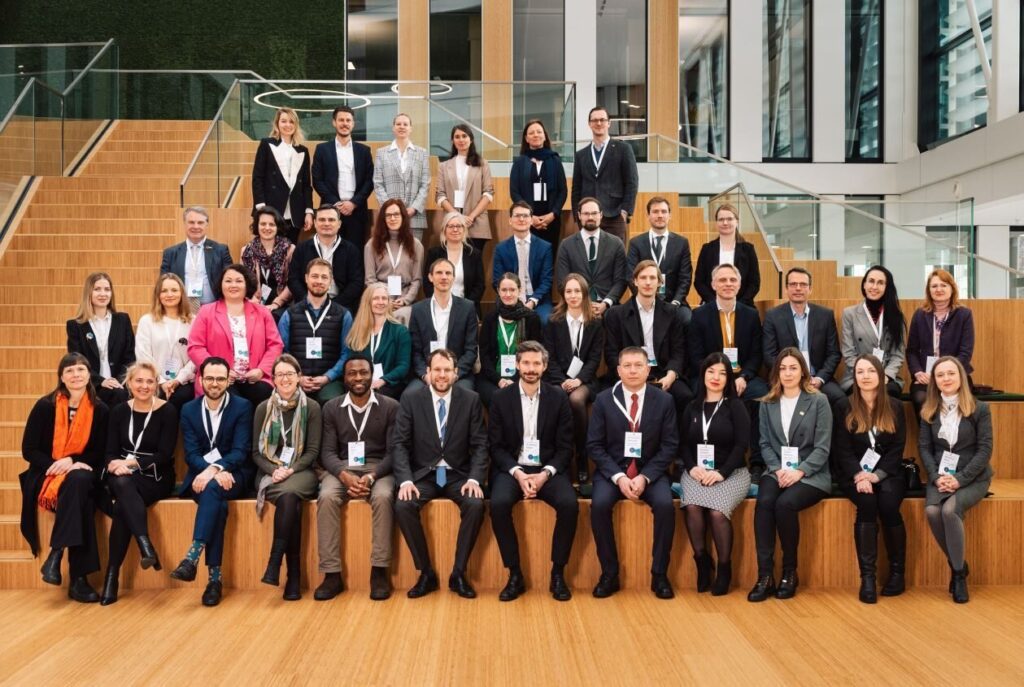The second IKI interface workshop for Ukraine was held on 27 February in Berlin.
Almost exactly one year ago, Russia invaded Ukraine and the country has been at war ever since. What are the implications for the projects run by the International Climate Initiative (IKI)? And how can work already start on a green reconstruction, given this situation?
These and other questions were discussed in the second IKI interface workshop for Ukraine. The workshop, held on 27 February 2023 in Berlin and as a virtual event, was titled “IKI Implementation in War Times – Underpinning Ukraine’s Green Reconstruction with Ambitious Climate and Biodiversity Policy and Action”, and saw Ukrainian IKI projects discussing these issues together with political partners from Germany and Ukraine.
Wrap-Up Video of the Event
Also participating in the conference was a delegation from the Ukrainian Ministry for the Environment, which included Ukraine’s Deputy Minister of Environment and Natural Resources, Mr Oleksandr Krasnolutskyi. Representatives of all IKI implementing organisations working in Ukraine were also in attendance. Germany was represented by the Federal Environment Ministry (BMUV), the Federal Ministry for Economic Affairs and Climate Action (BMWK), the Federal Foreign Office (AA) and Zukunft-Umwelt-Gesellschaft (ZUG) gGmbH as the IKI project management agency. The event itself was organised by the Ukraine Interface Project at Gesellschaft für internationale Zusammenarbeit (GIZ) GmbH.
The Ukrainian delegation also included Oleksandr Krasnolutskyi, Deputy Minister at the Ukrainian Ministry of Environment.

The workshop was opened by Dr Philipp Behrens, Head of the International Climate Initiative Division at the BMWK, who emphasised the long-standing close cooperation with Ukraine in his keynote:
This year, the International Climate Initiative turns 15 – and from the outset, Ukraine and Germany have worked together closely on projects supported by this funding programme. In the future, we are aiming to further strengthen this close cooperation with the Ukrainian government – particularly in terms of a green and climate-friendly reconstruction. I truly hope that the war in Ukraine can be stopped as soon as possible, thereby allowing us to tackle these challenges together within a peaceful Europe.”
In his speech, Oleksandr Krasnolutskyi, Deputy Minister of Environment and Natural Resources of Ukraine, highlighted the priority given to protecting the climate and biodiversity in his country, despite the ongoing war:
I would like to thank the German authorities for the help provided to Ukraine. This has been offered on many levels: in terms of welcoming refugees and military aid, and also in the field of environment and climate protection. Even though the situation in Ukraine is very difficult at the moment, we already have to make plans for the future. Ukraine’s recovery will take place under the motto ‘Build back better, build back greener’. For this, we will draw on best practices from Europe. With initiatives like the International Climate Initiative, Germany is a leading country in this field.

The IKI has supported Ukraine since 2008 and will expand this engagement even further in the future. To date, the programme has supported 20 bilateral projects between Germany and Ukraine, with a total funding volume of almost EUR 100 million. This cooperation is focusing on climate change mitigation. The workshop offered participants a platform for in-depth discussions about IKI project activities in wartime. Topics of discussion included sounding out ways to use the IKI network to strengthen support in Ukraine.
The ‘interface workshops’ are a long-established dialogue format, which are organised by the IKI interface projects. This IKI workshop was a key agenda item for the Ukrainian delegation’s official visit to Germany.


Photos and Video: GIZ/Georg Meyer
